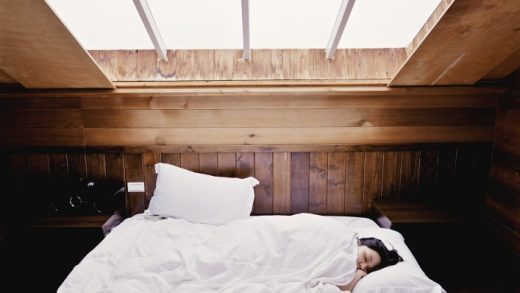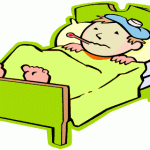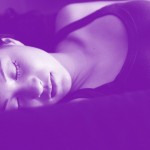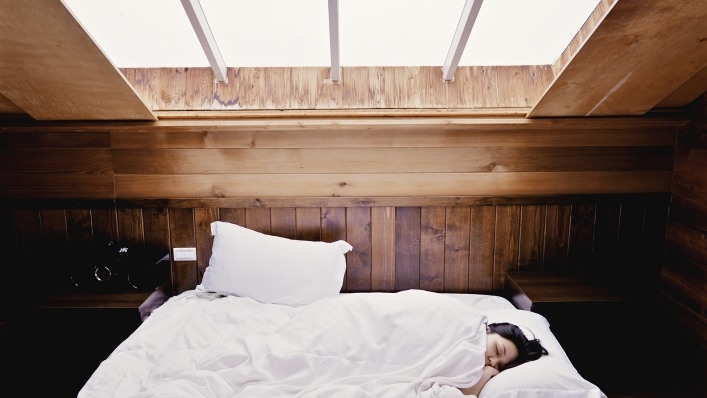What Happened When I Tried Hypnosis To Get A Better Night’s Sleep
When it comes to mastering healthy habits, sleep is probably–by far–the one I have to work at the most. When life gets busy, sleep is the first thing that gets compromised, every time.
But I’ve been hearing more and more anecdotally from friends that when they prioritized sleep, they saw a noticeable difference in their energy levels and focus–even more so than eating a better diet and exercising. And I can’t ignore the research-backed evidence that indicates a small level of sleep deprivation can affect your cognitive performance. I’ve found that when I consistently get even just 15 to 30 minutes less than I need, my focus suffers.
So after years of neglect, I decided it was time I gave sleep the attention it deserves. But I wanted to start with a small habit that I could maintain. I didn’t want to experiment with an elaborate bedtime routine I would never maintain. After lengthy research, I came across a study–conducted by the University of Zurich–that found that women who listened to audio hypnosis before bed experienced 80% more time in deep sleep compared to those who didn’t. This seemed like an easy routine to add to my bedtime, so I decided to give it a go. Here’s how I fared.
My Method Of Hypnotherapy
I wasn’t ready to have a hypnotherapist hypnotize me to sleep for a week every day. Instead I started small with a hypnosis app. There are a lot of options to choose from: a search for “sleep hypnosis” on the iOS App store rendered more than 40 options . All of them make pretty bold claims to “cure insomnia” and improve sleep quality within a week or two.
I was very skeptical. Many had very spammy-looking websites, and it appeared that many weren’t developed (nor conducted) by a clinical hypnotherapist.
I settled on a sleep hypnosis app called Sleep Well, whose own sales pitch claimed that regular use would lead to falling asleep easily and experiencing deep, restorative sleep throughout the night within one to three weeks. The company behind the app states that its hypnosis is “read by a certified clinical hypnotherapist and hypnotherapy instructor.” That sounded better than most.
First Evening: I Snoozed Quickly
I started my experiment on a Sunday night because that tends to be the night that I have trouble falling asleep. I enjoy my job, but I still get Sunday-night anxieties about being able to get all my work done in the week ahead. Sleep Well’s hypnosis was 21 minutes long, so I had to force myself to be in bed 21 minutes earlier. I aimed for 9:40 p.m., but ended up under the covers at 10:04 p.m.
There were two options for the “type” of hypnosis I could listen to: “Tension Release” induction or “Relaxing Color.” I also had a choice of background music or natural sounds. (I opted for “raindrops,” since rainy days always make me much sleepier.) I tried “Tension Release” on the first night, where a calm-sounding woman’s voice told me repeatedly to “let go” and tense every part of my body from my feet to my forehead, before slowly “relaxing” them.
I don’t remember how far into the hypnosis I was before I drifted to sleep, but I did. I woke up at about 11:00 p.m. due to some banging from the neighbors upstairs and realized I’d fallen asleep during the hypnosis. I went back quickly to sleep and woke up pretty refreshed on Monday morning at 6 a.m. Day one was a success!
Nights Two To Seven: Mixed Results
On Monday evening, I wasn’t so successful. I wasn’t feeling great, and some body aches made me think that the fall flu was about to hit me. As soon as I got home and ate dinner, I went to bed. It was 8:00 p.m., and despite my entire body being tired and yearning for rest, I was full of anxiety about getting sick–which I soon found would be an impediment to the hypnosis.
I opted for the “Relaxing Color” meditation this time. The audio instructed me to choose a color that embodied relaxation, then picture it enveloping my body (all between repetitive instructions to “let go”). But I struggled to focus, and found myself impatiently waiting for the hypnosis to finish so I could actually try to fall asleep. I stayed fully awake during the hypnosis this time, and didn’t fall asleep until an hour later (according to the tracker on Sleep Cycle). I also found myself waking up several times due to sweats, but it was only Day Two.
I gave the “Relaxing Color” audio ago again the next day and experienced better results. I suspect feeling physically better and then doing a grueling workout in the evening might have had something to do with it. As I began to do it for the rest of the week, I noticed a pattern. The hypnosis worked better when I was already relaxed before bed. If I was anxious about something, it failed to calm me down, despite my best efforts to focus on my breathing (something I learned to do through meditation). On the last evening of the experiment, for example, I was feeling super apprehensive about my first half tough mudder course that I was going to do the next day. I even tried to calm myself down by drinking herbal tea and taking a hot shower before I went to bed, but it didn’t work. I stayed awake for about two or three hours and slept terribly.
Essentially, It’s About Winding Down And Bedtime
When I stopped using the app and went back to my normal sleep routine of drinking herbal tea and reading, I fell asleep just as quickly. Particularly on days where I exercised in the evening after a long day at work, as soon as my head hit the pillow, I was asleep within 10 to 15 minutes. And even though I went to bed later, I didn’t feel that much difference between my sleep quality when I used the hypnosis app and when I didn’t.
Dr. Neil Kline of the American Sleep Association told me that ultimately, “One of the most common causes of insufficient sleep is simply not allowing for enough total sleep time. In our hectic lives, we often prioritize other activities over sleep.” Activities like meditation (which in my experience, is not that much different from the hypnosis audio) can be helpful in “setting the stage and facilitating sleep,” Dr Kline asserts.
Perhaps I needed to give it two more weeks to see if it would improve my sleep quality, but I found that as long as I gave myself some time to wind down, I usually slept pretty well, provided that I exercised and ate healthy that day. On days when I felt like my sleep quality was better, it was always because I got eight hours (my ideal) instead of six and a half to seven (what I usually get). Perhaps if I tried out a better mattress, or invested in materials that changed the bed’s climate to be optimal for sleep like my Fast Company colleague Liz Segran, I might have gotten better-quality sleep on seven hours. But it wasn’t so with listening to hypnosis audio, it seemed.
I don’t consider the experiment a failure. If anything, it reinforces the idea that I need to allow extra time before bed to wind down. Just like everything else in life, there’s no shortcut. Sleep is something to which I have to dedicate more time.
Fast Company , Read Full Story
(39)














